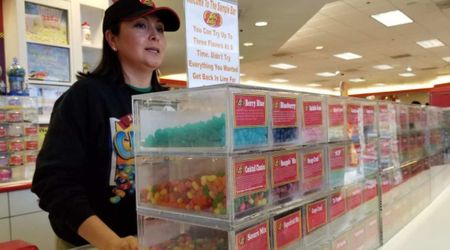Fraudsters Are Exploiting Online Shoppers with Counterfeit Postcard Stamps

The holiday season witnessed a new form of scam involving the purchase of counterfeit stamps online. As part of the fraudulent scheme, potential customers are directed to unauthorized websites selling fake postal stamps at comparatively lower prices. Unsuspecting individuals, seeking convenience and cost savings, end up providing personal information, inadvertently falling victim to the scam.

These scammers create fraudulent websites claiming to offer discounted postal stamps, capitalizing on the fact that many consumers turn to online shopping for added convenience during busy times. As prospective buyers conduct online searches for stamps, these websites strategically appear in the results. Scammers also leverage social media platforms to run campaigns, advertising these seemingly attractive deals on postal stamps. Victims often fall into the trap and give away their personal and credit card details on these fraudulent websites. The scammers, in turn, misuse the provided information for financial gain.

Contrary to the usual practice of making payments directly to the United States Postal Service (USPS), victims of this scam unknowingly make payments to someone's personal PayPal account. This unconventional payment method can certainly raise suspicions among vigilant consumers.
Moreover, if customers inquire about the inconsistency in payment procedures, scammers go to great lengths to maintain their deceptive facade. They often pose as USPS or present themselves as a supposedly legitimate "Approved Postal Provider," further complicating the situation.
The deception continues even after the stamps are received, as discerning their authenticity can be challenging for the average customer. The truth comes to light when customers affix these stamps to their cards and attempt to send them. It is at this point that the harsh reality sets in – the cards fail to get delivered. This frustrating revelation not only exposes the deception but also dashes the holiday spirit of those who fall victim to this elaborate and cunning scheme.
"Within the past three years there has been an increase in sort of high-quality counterfeits originating overseas," says Michael Martel, a postal inspector and agency spokesman for the U.S. Postal Inspection Service, USPS’s law enforcement arm. "Anything, when you’re talking 20, 30, 40, 50 percent off the face value … is more than likely fraud," he added.

To safeguard oneself from falling victim to stamp scams, it is important to adopt a vigilant and cautious approach. Firstly, before making any purchase, thoroughly review the authenticity of the website. Check the duration of their presence in the business and confirm if they are recognized as an approved postal provider. Furthermore, verify the security of the website by checking its URL. Ensure that the URL starts with "https" and features a lock icon, indicating that the website is secure for usage. Additionally, seek out online reviews of the platform from which you plan to make the purchase.
To ensure the legitimacy and authenticity of postage stamps, it is best to purchase them directly from the post office or approved vendors. These approved vendors can include reputable "big box" or warehouse retailers that maintain resale agreements with the U.S. Postal Service, allowing them to offer a nominal but legitimate discount on postage stamps. Well-known retailers like Kroger, CVS, and Walgreens also sell books of stamps, providing convenient alternatives for those unable to visit a post office.






















